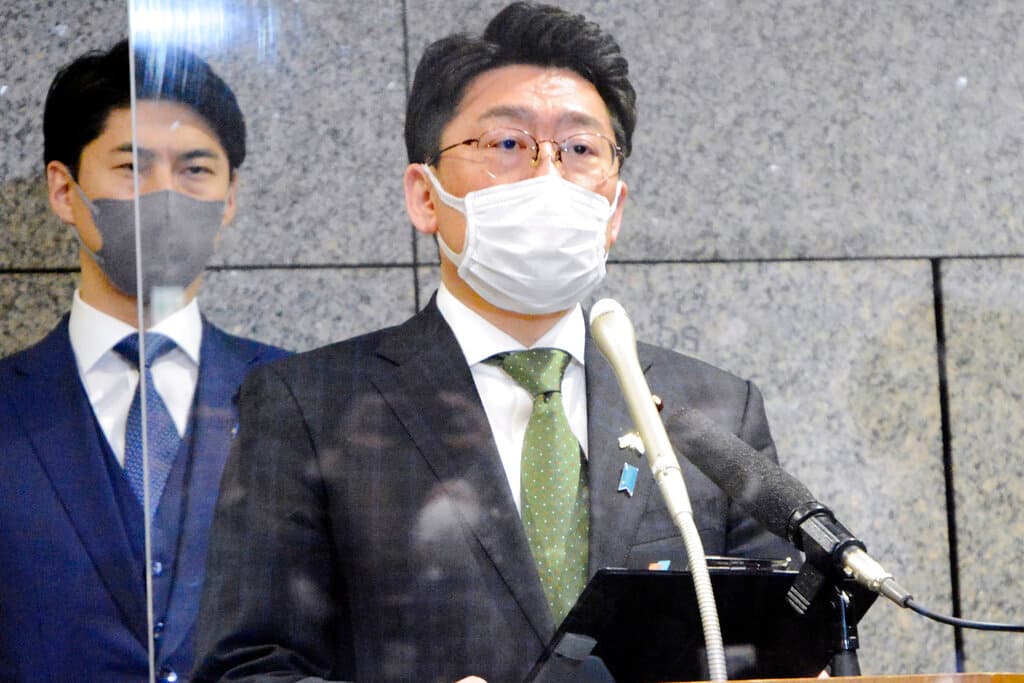America Courts North Korea’s Missile Partner, Iran, Even as It Condemns the Latest Test
North Korea’s close cooperation with Iran on ballistic missiles — including those that may in the future carry nuclear warheads — is one of the world’s worst kept secrets.

The Biden administration is likely to further sanction North Korea after the communist hermit land renewed its Intercontinental Ballistic Missile testing. At the same time, though, the American side will be courting Pyongyang’s top allies in missile development, offering Tehran sanctions relief and cash in pursuit of a flawed nuclear deal.
According to Japan’s deputy defense minister, Makoto Oniki, a new North Korean type of “ICBM-class missile” flew “for about 71 minutes and landed inside Japan’s exclusive economic zone” this morning. The launch, Mr. Oniki added, “represents a serious threat to our security.”
That’s no small message from a nation with which we have a mutual defense treaty.
The State Department spokesman in Washington, Ned Price, joined the condemnation, adding it “demonstrates the threat” that North Korea’s “unlawful weapons of mass destruction and ballistic missile programs pose” to its “neighbors and the region as a whole.”
Mr. Price said earlier that completion of a deal to revive the Iran pact is “neither imminent nor certain.” Yet the Biden administration keeps pushing to renew the 2015 deal, which temporarily restricts some aspects of Iran’s nuclear program but puts no similar restrictions on its development of ballistic missiles.
North Korea’s close cooperation with Iran on ballistic missiles — including those that may in the future carry nuclear warheads — is one of the world’s worst kept secrets.
The cooperation obtains even as some may try, for reasons of expediency, to deny it. In Tokyo several years ago, local officials were asked why Japan, under constant threat from North Korean missiles and atomic weapons, maintains close relations with Tehran. North Korea at that time had recently launched four missiles that landed at sea just on the edge of Japan’s maritime border.
Japan’s ties with Iran have cooled off significantly since then, but for whatever it’s worth, the Tokyo officials at the time maintained — ever so diplomatically — that there is no clear-cut proof of Iran’s military ties with the communist North.
Regardless, intelligence agencies around the world — including, likely, Japan’s own — closely monitor those ties.
Even with the naked eye it’s hard to deny the similarities between North Korea’s ballistic missiles and Iran’s. Through the 1990s, Pyongyang became Tehran’s main supplier of missiles. That culminated in the 1999 transfer of 12 Nodong missile engines to Iran from North Korea, a transaction that was closely observed by the CIA.
In 2011, a report of a United Nations committee that was established to monitor compliance with sanctions imposed on Pyongyang after its 2006 nuclear test detailed “between North Korea and Iran” regular “flights” that transferred “missile-related equipment.”
A 2016 congressional report similarly documented “significant and meaningful” missile cooperation between the two countries. According to another congressional report, Iran’s Shahid Haj Ali Movahed Research Center was assisted by North Korean missile specialists for its 2020 launch of a space vehicle.
Technology transfers went both ways: The Nodong missile warhead that Pyongyang displayed in 2010 bore a striking resemblance to Iran’s Shahab-3 triconic warhead. Missile technology specialists from both countries visit each other often.
Beyond Tehran itself, Pyongyang assists Iran’s regional allies. The budding Syrian nuclear plant at Al Kibar, which Israel destroyed in 2007, was built by North Korea. Pyongyang engineers supply Hezbollah with technology and materiel to assist in the construction of tunnels meant to infiltrate Israel. Pyongyang also arms Yemen’s Iran ally, the Houthis, and assists Hamas.
Today’s ICBM launch is significant. In 2017, to accommodate President Trump’s failed attempt at constructive negotiations, Pyongyang’s strongman, Kim Jong-un, announced a temporary suspension of nuclear and ICBM testing.
Today’s test signals an end to the suspension, and many in the region fear a new nuclear test — possibly by April 15, when Pyongyang marks the birthday of the late Communist regime’s founder, Kim Il-sung.
The current scion of the Kim dynasty apparently doesn’t plan to sit aside as the world’s focus is on Ukraine. The viscerally anti-American Pyongyang regime wants to get in on the action and show its worth as a member of an alliance challenging the American world order.
Those include China and Russia — and as much as JCPOA advocates would like to deny it, also Iran.
“Iran would not have the missile capabilities it has today if not for the Kim family’s help,” the director of the Washington-based Center for the National Interest, Harry Kazianis, says. As America “rushes towards another bad nuclear deal with Iran, it will be North Korea that will help Tehran develop an ICBM over the next few years.”
A close watcher of the Kim regime, Mr. Kazianis adds that while a renewed JCPOA may temporarily freeze Iran’s nuclear program, Pyongyang will continue to assist its ballistic missile program, which “means Tehran will have the missiles and the nuclear material it needs to quickly develop the ability to strike Europe, and even America, with nuclear weapons in the event that it wants to.”
As condemnations of Pyongyang’s latest provocation rise in Washington and around the globe, a group of countries, which in addition to America include Kim supporters in Beijing and Moscow, are working hard to salvage the Iran deal. Peter may feel robbed as we bend over backward to pay Paul.

